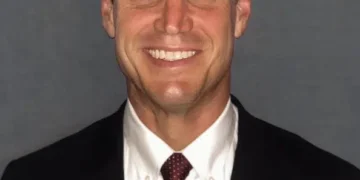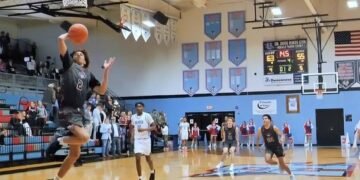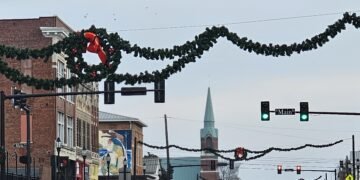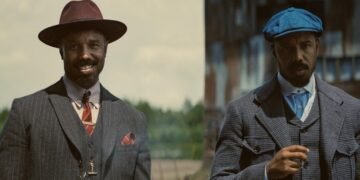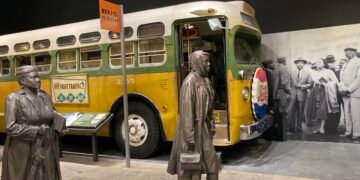School starts in Henderson County on Aug. 7. This takes me back to my own first days of school.
I looked forward to my first day of first grade, which took place in a school — built at the tail end of the Baby Boom era — that was so new that the cafeteria/gymnasium wasn’t yet finished. We ate lunch brought from home in our classrooms, a bunch of half-pints who bought half-pint cartons of “white” or chocolate milk for 2 cents apiece from a refrigerated cart.
I accepted the start of second grade with sufficient grace. But by third grade, I dreaded the start of each school year. I deeply resented the way school interfered with my social agenda, which was to stay up late, sleep late, watch TV and play kickball or “army” with the neighborhood kids.
That resentment continued for years. I was a lackluster scholar. A low point came in seventh grade when I had an English teacher I’ll call Mrs. Dourface.
She was a soured soul who seemed to resent pupils. She taught dreadful topics, such as the diagramming of sentences, a joyless exercise ostensibly intended to teach proper grammar but that was really just a series of tricks and trapdoors aimed at steadily lowering one’s grade, which Mrs. Dourface seemed to relish.
Sometimes she would leave the classroom to go to the school office, and would tell us to remain quiet and study. Of course, chatter would start within a few moments. Inevitably, five minutes later we would hear her voice over the two-way classroom P.A. system. “AHA!” she would say (or something like it) from a microphone at the principal’s office. “I told you to be quiet but I can hear that you AREN’T!”
She expressed outrage toward us, but the satisfaction in her voice was clear. She knew we couldn’t remain silent while she was gone. As Crosby, Still & Nash would later sing, “And we never failed to fail/It was the easiest thing to do.”
I certainly had no interest in homework in those days—that is, until Mrs. Dourface assigned us to write a term paper on the subject of our choice.
This was a miracle. I would research and write a term paper about the history of baseball, which was my passion at the time and a beloved hobby I shared with Dad.
I threw myself into that term paper. I threw cold water on the myth that Abner Doubleday had invented baseball in his hometown of Cooperstown, New York, and explained how a talented man-child called Babe Ruth transformed the sport.
I typed scores of pages, complete with footnotes and a bibliography. I illustrated it with copies of photos I purchased of legendary players: Ruth, Ty Cobb, Stan Musial, Mickey Mantle, Willie Mays. I filled not one, but two loose-leaf notebooks with my term paper. It was, as much as any seventh grader is capable of, an epic composition. I thought it would win, at least, Mrs. Griffin’s surprised admiration.
A week later I saw my grade: C+. Mrs. Dourface wasn’t happy with my footnotes, with all those ibids and op. cits. and Chicago Style rules—more tricks and trapdoors that kicked the stuffing out of the joy of any writing project.
To say that I pretty much quit on school at that point would not be much of an exaggeration.
But then came ninth grade and a remarkable figure: Mrs. Brenda Griffin, a teacher who took an unexpected interest in me. Unlike any teacher since kindergarten, here was a teacher who saw in me not a dull stone, but a rock with some worthwhile ore inside.
She insisted that I take a role in the ninth-grade play. She coaxed me into memorizing the soliloquy from “Hamlet,” Act 1, Scene 2. And she made me enter an essay contest. Well, she made the entire class enter it, but her eyes were fixed on me when she assigned it. To my astonishment, I won—not just in my class or my school, but the entire county. I got a $50 savings bond and my dumb picture in the local newspaper.
Then, in the spring of my sophomore year, my English teacher—the formidable Mrs. Jane Crowell, a woman of such capacity that she was assigned not one, not two but three student teachers that semester—directed one of those student teachers to ask me if I would write a sports story for the student newspaper, of which Mrs. Crowell was the advisor.
I said yes. Then I said yes to being the sports editor. And yes to attending a high school journalism workshop at a university that awarded me a small scholarship.
During my junior and senior years, I was a changed student. I took an unprecedented interest in my subjects: Honors history (the A.P. history of an earlier age). Physics. An honors logics class.
To be fair, only a dolt would not be interested in those classes, which were taught by exceptional teachers who not only were masters of their topics but also keenly interested in their students. Honors history was taught by a World War II-era battle colonel who created the first real multimedia curriculum I ever encountered; the logics teacher seemed daffy, but that belied instructional skills that made you as excited to enter her classroom each day as she was.
Did having a couple of teachers seeing some promise in me make the scales fall from my eyes regarding school? Or was I just fortunate, late in my public-school career, to fall into the orbit of some extraordinary educators?
Perhaps both.
But they literally changed my life, taking a pimply, rudderless kid and helping point him in a direction that held promise.
As the new school year in Henderson begins, I hope there are kids who have a light turned on inside them, too.
And I hope teachers who have the wisdom and passion look for something inside kids that no one has seen before, and maybe turn some old chunks of coal into diamonds.




